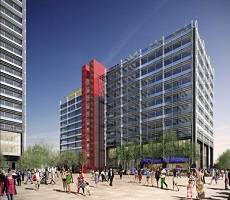May 27, 2015
Majority of employers want to promote mental wellbeing in the workplace
 Eighty-four percent of employers believe they have a responsibility to provide a work environment that promotes mental well-being, according to a new Buck Consultants at Xerox survey report “Promoting Mental Well-being: Addressing Worker Stress and Psychosocial Risks,” released last week at the Global Centre for Healthy Workplaces Annual Summit in Brazil. The Global Survey on Health Promotion and Workplace Wellness Strategies – with a strong focus on companies in the United States, United Kingdom, Brazil and Singapore – found that more than one-third of employers rate the stress level within their organization as “high or very high.” However, over two-thirds of employers offer flexible work schedules, and more than half offer telecommuting to mitigate work-related stress, while more than half of employers rate their organization as very or extremely supportive of the mental well-being of their employees.
Eighty-four percent of employers believe they have a responsibility to provide a work environment that promotes mental well-being, according to a new Buck Consultants at Xerox survey report “Promoting Mental Well-being: Addressing Worker Stress and Psychosocial Risks,” released last week at the Global Centre for Healthy Workplaces Annual Summit in Brazil. The Global Survey on Health Promotion and Workplace Wellness Strategies – with a strong focus on companies in the United States, United Kingdom, Brazil and Singapore – found that more than one-third of employers rate the stress level within their organization as “high or very high.” However, over two-thirds of employers offer flexible work schedules, and more than half offer telecommuting to mitigate work-related stress, while more than half of employers rate their organization as very or extremely supportive of the mental well-being of their employees.














 Lately I’ve seen many articles about sit stand workstations and references to Scandinavia where almost all of us employees have access to sit stand workstations. It is true that most of the Scandinavian employees have access to sit stand workstations and in for example in Denmark employers are required by law to provide sit stand workstations to the employees, but this does unfortunately not automatically mean that the Scandinavian employees actually stand by the workstations. Even though most of us actually know that sitting is bad for our health, wellbeing and even our performance, we tend to sit most of the time while working. It is mostly about us being used to sit while working. It is a habitual behaviour and instead we need to get new habits of standing and moving at work. Change management is needed.
Lately I’ve seen many articles about sit stand workstations and references to Scandinavia where almost all of us employees have access to sit stand workstations. It is true that most of the Scandinavian employees have access to sit stand workstations and in for example in Denmark employers are required by law to provide sit stand workstations to the employees, but this does unfortunately not automatically mean that the Scandinavian employees actually stand by the workstations. Even though most of us actually know that sitting is bad for our health, wellbeing and even our performance, we tend to sit most of the time while working. It is mostly about us being used to sit while working. It is a habitual behaviour and instead we need to get new habits of standing and moving at work. Change management is needed.



















May 27, 2015
Smart buildings, smart cities and the promise of infinite data
by Paul Doherty • Cities, Comment, Facilities management, Technology
(more…)